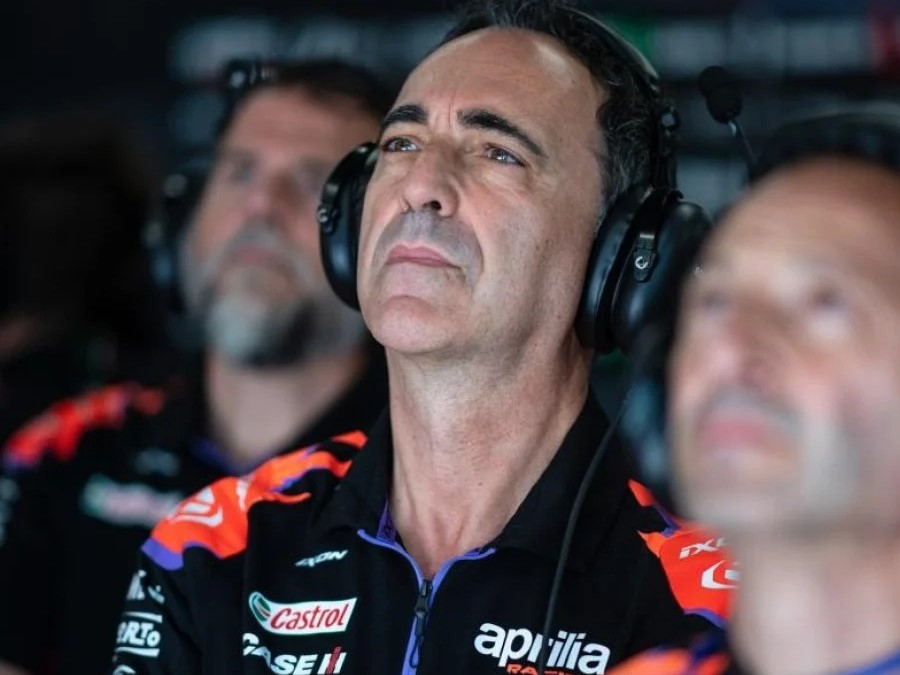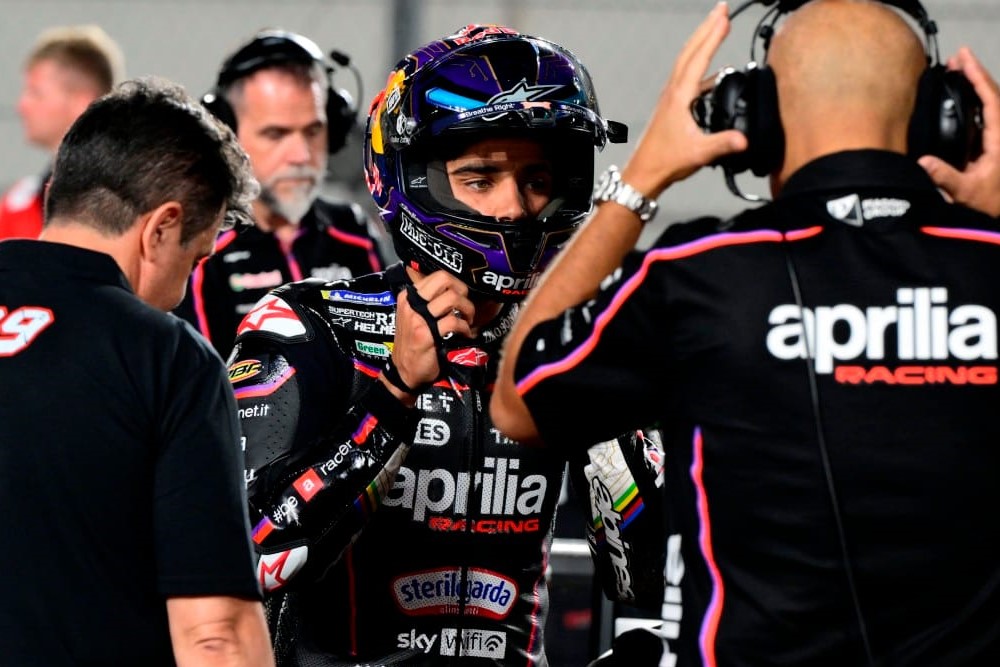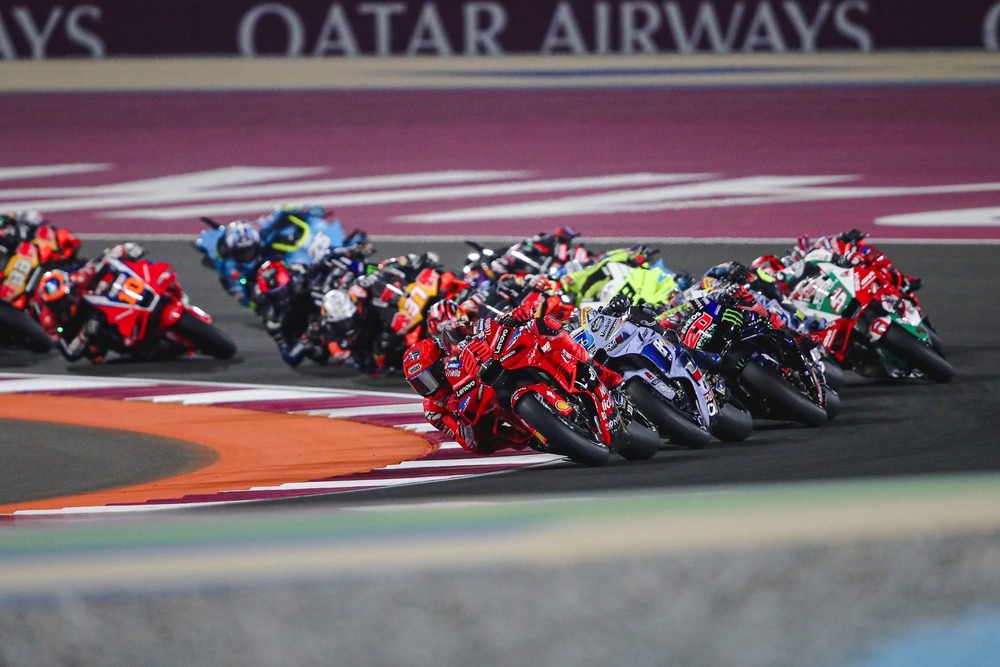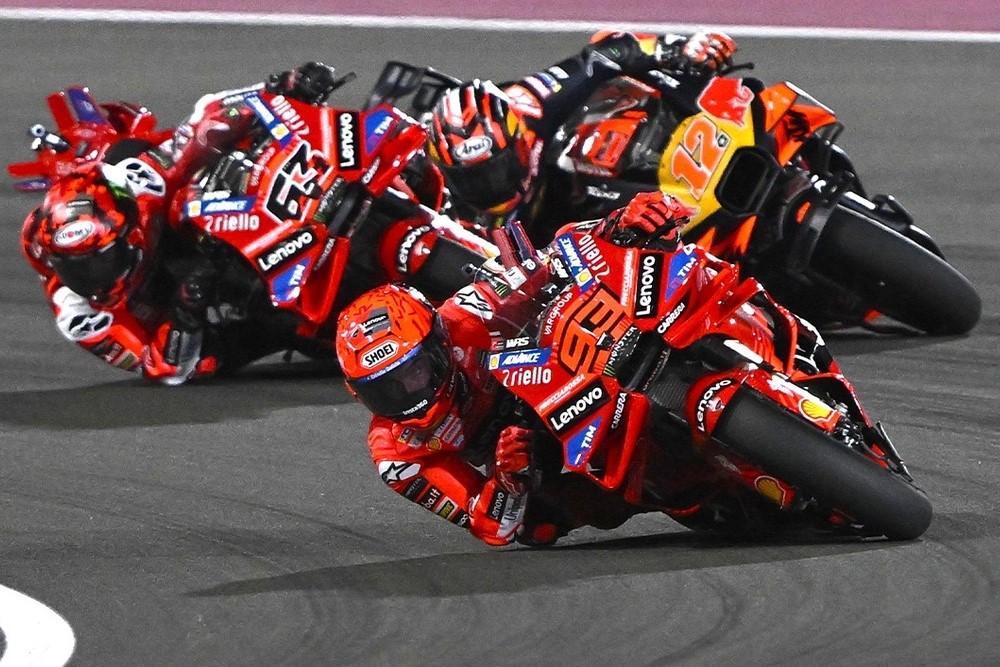The recent incident involving an Aprilia engineer caught taking Ducati 3D scans during the Austrian MotoGP has resulted to his sacking.
During the Austrian Grand Prix held at the Red Bull Ring, an Aprilia engineer was spotted using an iPad LiDAR camera to scan Marco Bezzecchi’s Ducati GP23 bike which sparked outrage from team manager Davide Tardozzi.
The incident happened during a public pit lane walk, where the engineer was reportedly seen moving very close to the Ducati bikes, capturing detailed scans of their design.
The act was not only unauthorized but also breached an unwritten agreement among teams regarding the limits of competitive intelligence gathering. The engineer was reportedly spotted scanning not only Ducati bikes but also those of Yamaha and Pramac, raising eyebrows about the extent of his actions.
The situation escalated when Davide Tardozzi confronted the Aprilia engineer leading to a heated exchange that was captured on video and circulated widely in the paddock and on social media.
He noted that the engineer was caught in the act, with video evidence showing him scanning the bikes in close proximity, which he described as a blatant violation of the competitive spirit of MotoGP.
“This guy also scanned the bikes at Yamaha and Pramac,” Tardozzi told Speedweek.com after the incident. “People then saw him at VR46 and filmed him doing it.
“He walked around all the bikes with the iPad sometimes up to 10 centimetres and in front of everyone.
“One of our guys was standing right behind him so we have a video of his iPad screen. That’s how we know that he scanned the bikes with a program.”
In the wake of the incident, Aprilia took swift action by terminating its contract with the engineer involved. This decision was reportedly part of a zero-tolerance policy towards such breaches of conduct rather than a direct response to Ducati’s complaints.
Aprilia engineering boss, Romano Albesiano, expressed his discontent with the engineer’s actions, emphasizing that the individual was not acting under the official capacity of the team. He extended an apology to Ducati which was well received by Tardozzi.
“Romano was also very angry,” Tardozzi told Speedweek. “Romano isn’t stupid enough to send someone in an Aprilia shirt to do scans.
“I don’t know the guy, I’ve never seen him. Maybe he’s from the aerodynamics department.
“He probably wanted to be clever – but he’s probably the biggest idiot! I told him that he was doing something that wasn’t allowed.
“For me, the matter is over. Aprilia apologised – but it’s not fair.”
The engineer’s actions have been viewed as a significant misstep, especially considering the competitive atmosphere of MotoGP, where teams often engage in espionage-like tactics to gather information about their rivals.
While examining competitors’ bikes through photography and casual observation is common practice, the use of sophisticated technology to capture 3D scans crosses a line that many in the sport believe should remain intact.
The MotoGP paddock has long operated under an unspoken code of conduct, where certain boundaries are respected to maintain a level playing field. The use of advanced scanning technology, such as LiDAR, is seen as crossing that line, as it allows for precise measurements that could provide a competitive edge.
Historically, the sport has seen its fair share of espionage, with teams employing various tactics to gain insights into competitors’ designs and strategies.
The infamous case of Suzuki stealing MZ’s racing secrets in the 1970s serves as a reminder of the lengths to which teams will go to secure an advantage.
However, the current climate in MotoGP is characterized by a more collaborative approach, with manufacturers often sharing data and insights during testing sessions.
The actions of the Aprilia engineer, therefore, stand in stark contrast to this evolving ethos





